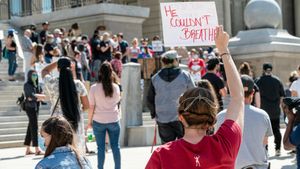Trafford Council has recently been granted permission to raise council tax by over £120 for the average household, as part of efforts to address significant financial challenges. After the government finalized its funding settlements for the fiscal year 2025/26, Trafford emerged as one of only six councils permitted to increase its tax beyond the usual 5% cap. The local authority had requested exceptional financial support (EFS) to plug a budget gap of £12 million, and the government granted this request, allowing Trafford to impose a 7.49% increase, equivalent to 2.5% above the referendum level.
For residents living in Band D properties, this hike translates to approximately £2.31 more each week. Councillor Tom Ross, the leader of Trafford Council, acknowledged the difficult circumstances leading to this decision. "Historic funding deficits and increasing cost pressures mean it is becoming harder to deliver what our residents need," he stated. He also emphasized the broader issue, noting, "We have managed our finances well... but this year we must set one of our toughest ever budgets."
The government's recent decisions not only hit Trafford but also include significant increases for other councils facing comparable financial distress. For example, Bradford is set to increase council tax by 10%, with Newham and Windsor and Maidenhead allowing 9% raises. Birmingham, Somerset, and Trafford will implement 7.5% increases. Angela Rayner, the Deputy Prime Minister, reiterated the necessity of these increases, stating, "We recognise the importance of limited increases... but we have been clear this must be balanced with the interests of taxpayers."
Rayner's comments came alongside news of the overall funding available for councils, which exceeds £69 billion for the upcoming year, representing a 6.8% increase compared to the previous year. Yet, she clarified, not all requests for tax increases were approved; some councils, such as Hampshire, were denied the ability to raise their taxes above the nominal 4.99% level. This strict allocation demonstrates the government’s intended approach to managing local council finances.
Louise Gittins, chair of the Local Government Association, conveyed concerns about the sustainability of funding levels. She remarked, "This financial year... remains extremely challenging for councils of all types, who now face having to increase council tax bills to bring in desperately needed funding next year yet could still be forced to make cuts to services." Gittins advocated for more significant and sustained increases to overall funding to help councils navigate their financial hardships.
The pressures on local authorities are swelling due to rising costs related to social care and temporary housing. The capital London is wisely managing its resource allocation, yet the situation remains dire, with boroughs reporting funding gaps totaling £500 million for the coming year, even after receiving their agreed increases.
Local authorities across England are grappling with the dual challenges of both demanding public service needs and limitations on financial inflow. A growing number of councils have turned to borrowing and emergency funding options. Reports indicate councils like Croydon, which has faced extreme financial distress with multiple bankruptcies, are still struggling under pressures of inflated service demands and outstanding debts.
Consequently, several boroughs have sought substantial government bailouts, proposing emergency support measures such as loans and asset sales to cover operational costs. The government’s somewhat stricter approach toward tax hikes is seen as pivotal for councils needing immediate relief. Rayner reinforced this by stating, "I don’t take the decision to raise council tax lightly. We aim to support those most in need through our proposed 80% Council Tax Reduction Scheme."
Newham stood out historically for setting one of the lowest council tax rates within London; even with the adjustments, borough officials aim to maintain budget stability for vulnerable communities by highlighting their efforts to keep tax levels manageable. Maintaining social service support for low-income families is seen as the primary objective amid these financial maneuvers.
With many councils across England elevacing taxes, the result is likely to be challenging for residents already facing high living costs. These decisions highlight the complex balancing act councils must perform, where the push for necessary service funding collides with the broader impact on local taxpayers. The situation casts light on the urgent need for reevaluation of financial strategies and funding sources available within local government.
Upcoming budget planning will need to navigate between sustaining necessary services and the financial limits of the public. Council tax increases may provide temporary relief, but the pursuit of sustainable funding solutions continues to be of utmost priority as local governments seek stability amid challenging economic conditions.



